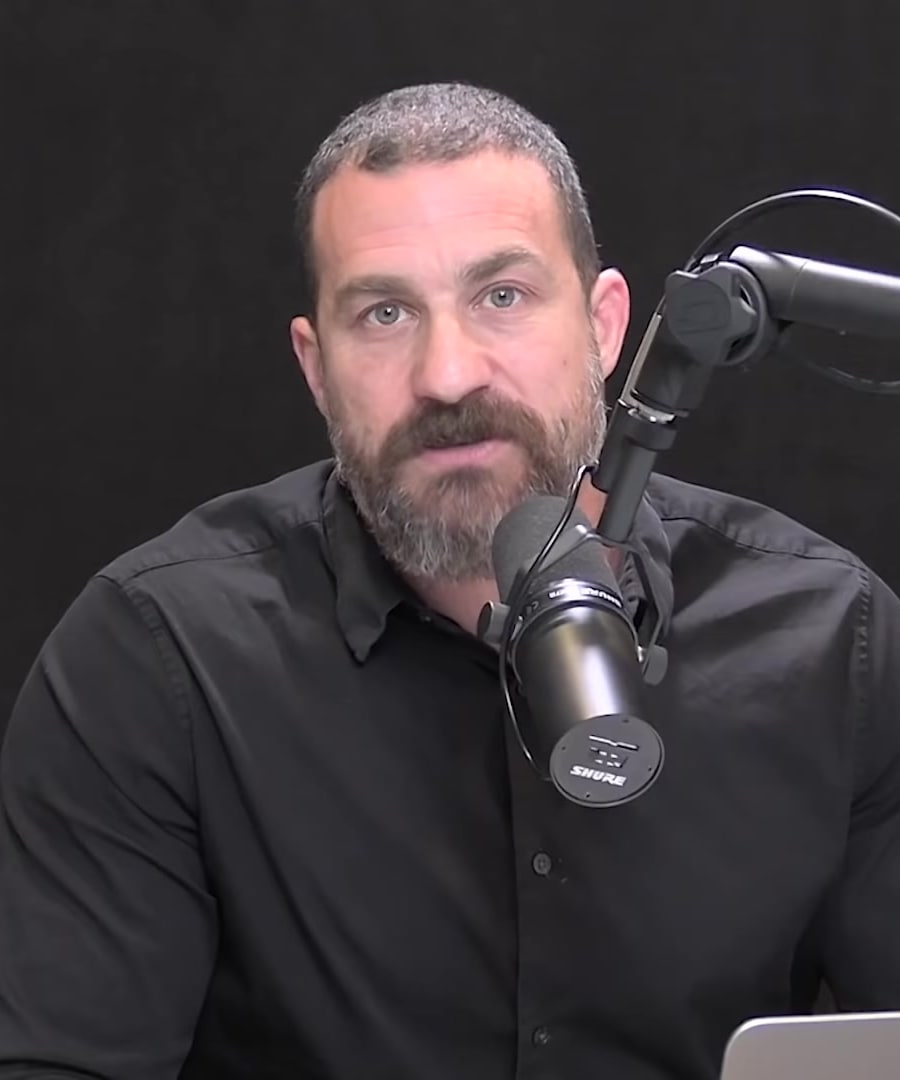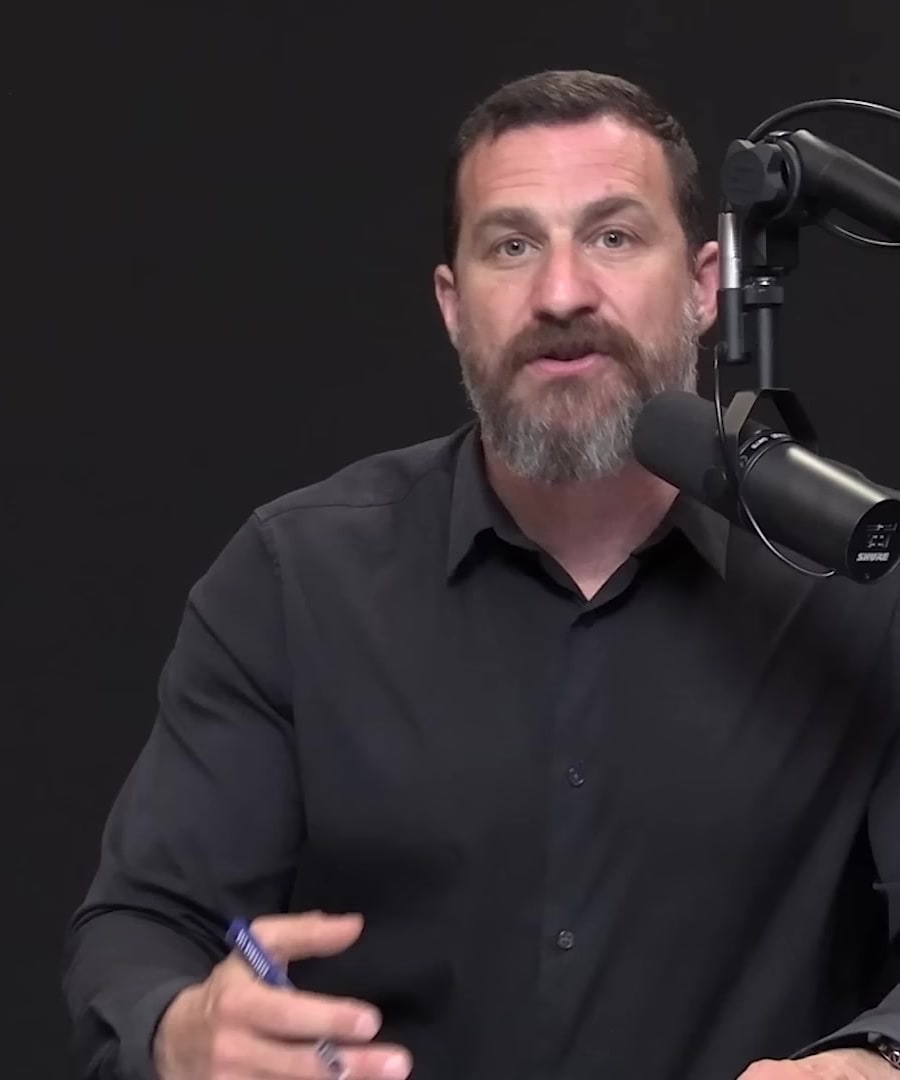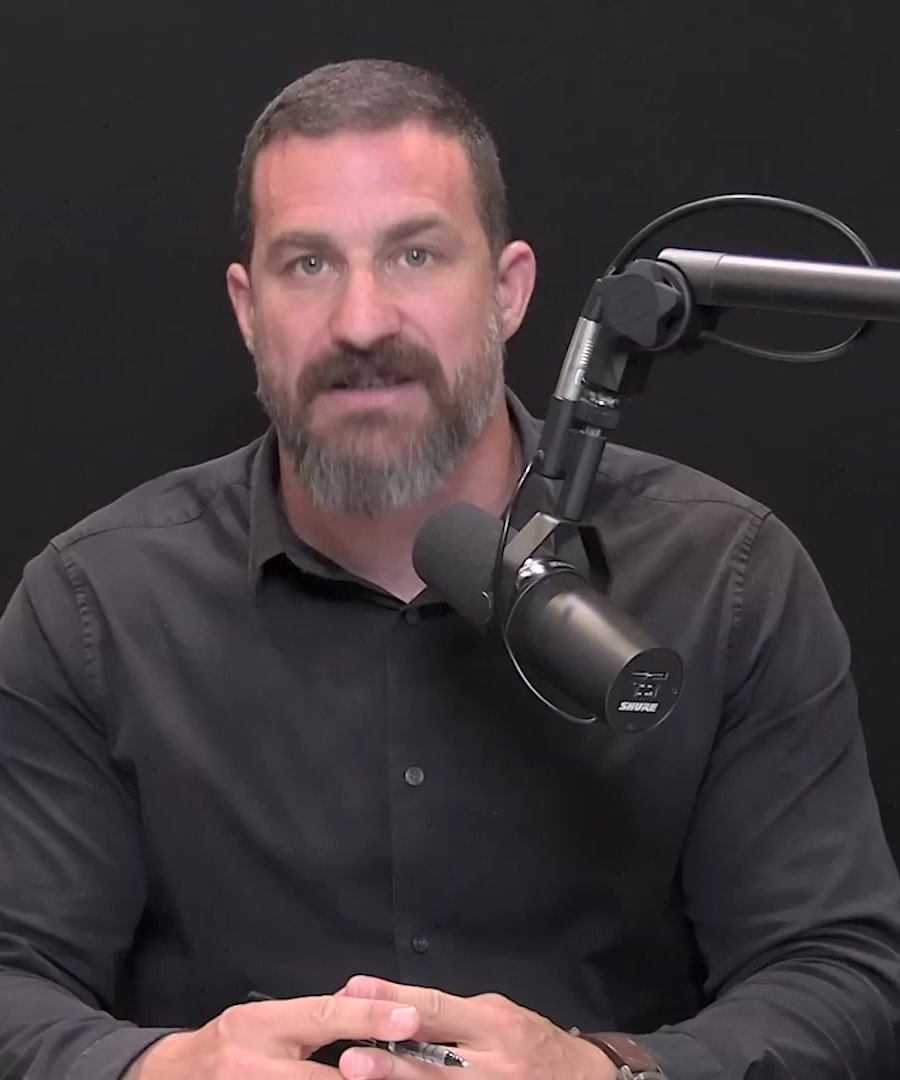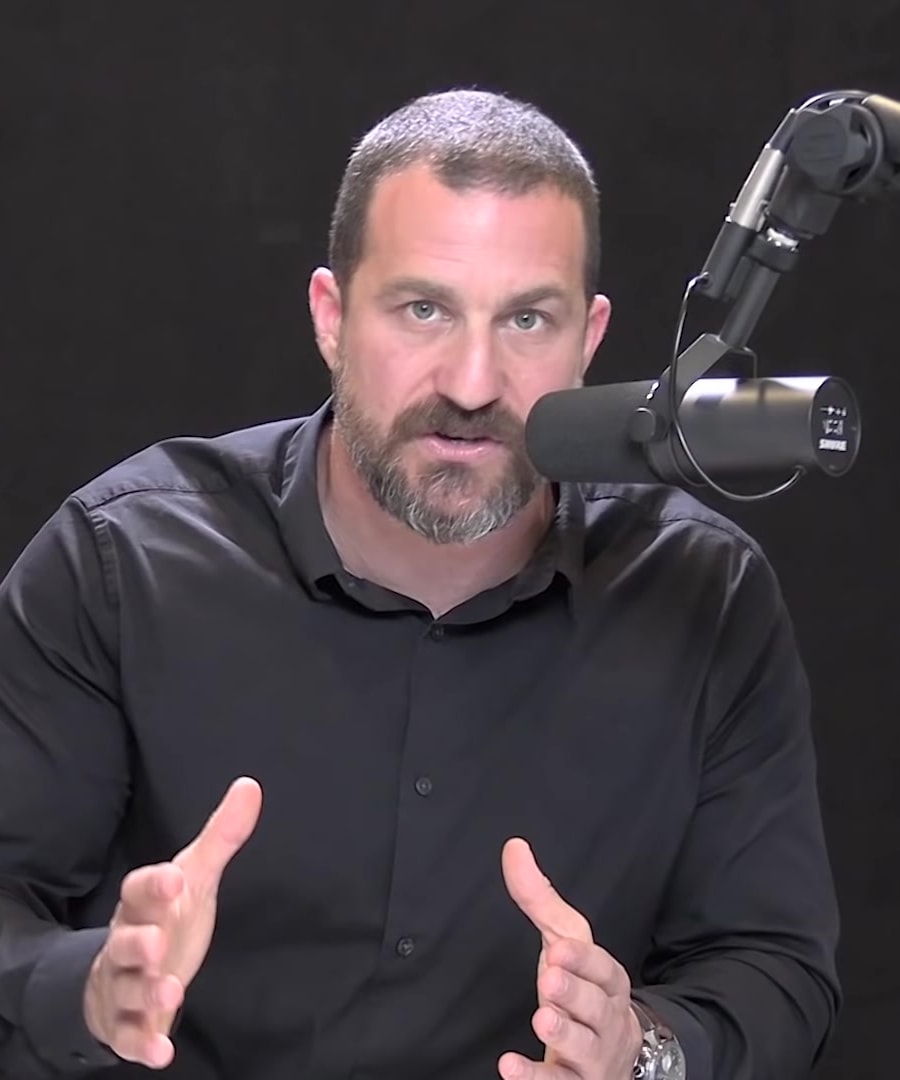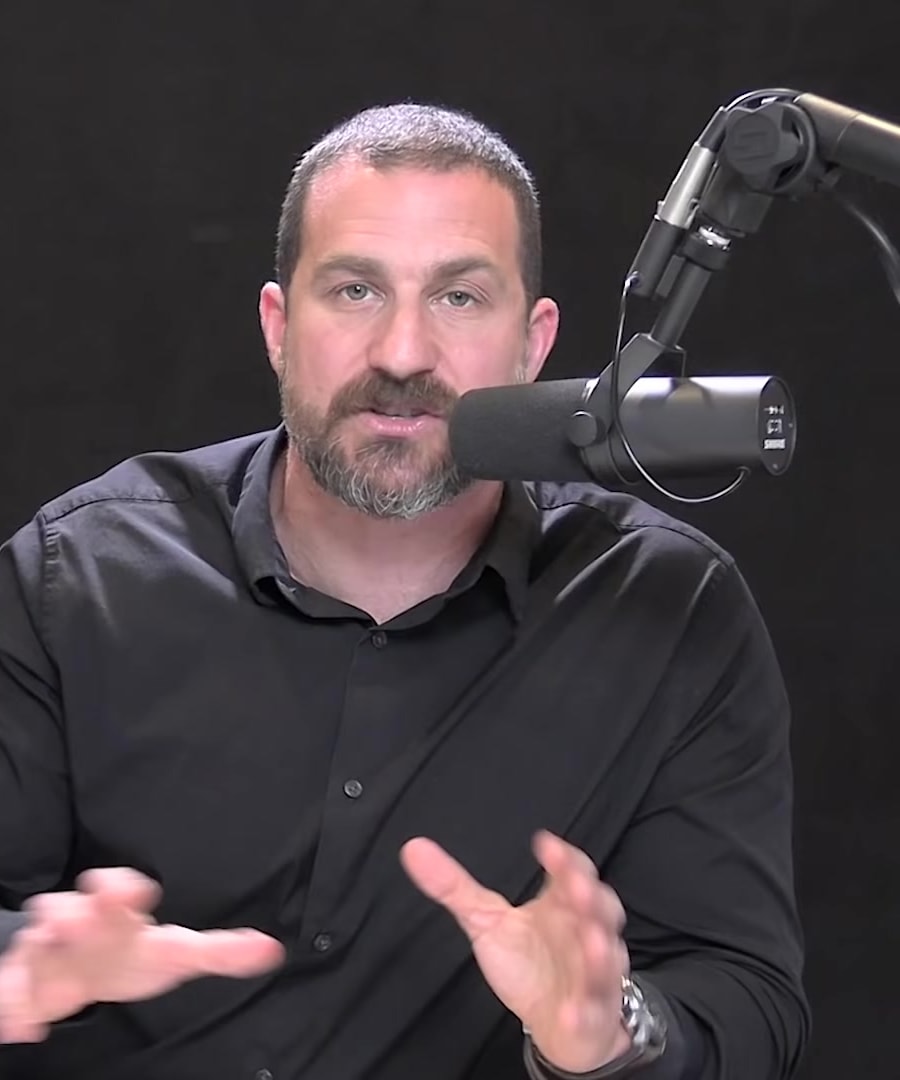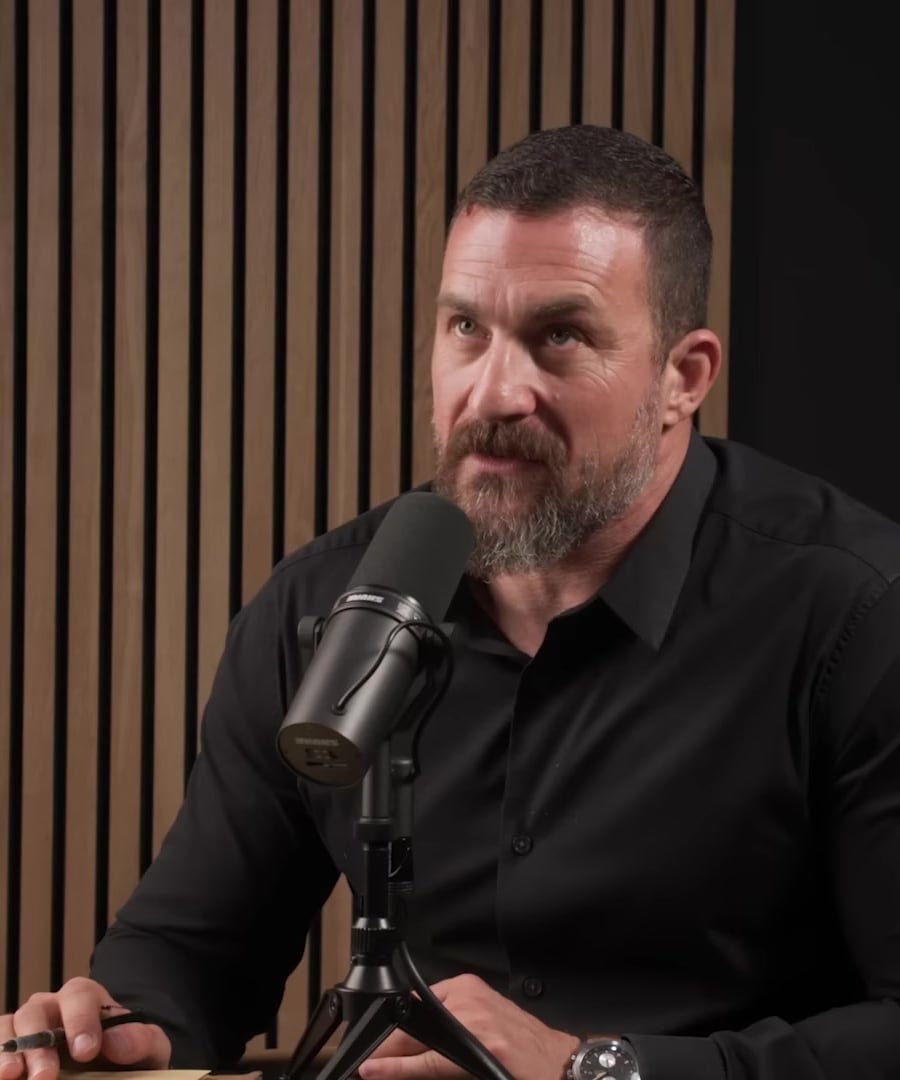Energy questionnaire
Sources:
The has provided insights into questionnaires that can probe various health-related topics. However, there is no direct mention of an "Energy questionnaire" from the retrieved clips. Here is what we found:
-
Hormone Questionnaires: Kyle Gillett discusses hormone questionnaires such as the Adam questionnaire, which is used to probe aspects of hormones like libido, athletic performance, and motivation. Patients' answers to questionnaires can differ significantly from the symptoms they verbally express to a doctor, especially when it comes to issues like libido and erectile dysfunction. This discrepancy emphasizes the importance of careful listening and interaction between the doctor and patient 1.
-
Boosting Cognitive Performance: In another episode, examines how physical exercise influences energy and cognitive performance. A study found that 15 minutes of moderate exercise before cognitive tasks can enhance focus and effectively reduce completion time for those tasks, which suggests that subjectively measured energy levels can be important for cognitive function 2.
If you require specific advice or information regarding tools or methods for assessing energy levels or enhancing energy through lifestyle interventions, please provide more context or clarify your request for more targeted information.
RELATED QUESTIONS-
How can I enhance my energy levels according to Huberman Lab?
Sources:
Here are some methods and insights from the on enhancing energy levels:
-
Moderate-Intensity Exercise: Engaging in 15 minutes of jogging or exercise equivalent to zone two cardio can increase feelings of energy, improve visual attentional control, and perceptual speed. This kind of exercise allows you to hold a conversation with slight breath-catching interruptions 1.
-
Cortisol and Epinephrine (Adrenaline): Understanding how to leverage hormones like cortisol and epinephrine can positively affect energy levels and immune system function. These hormones are vital for various biological processes and are linked to energy levels 2.
-
Epinephrine and Physical Activity: Any physical activity, such as walking, running, or swimming, increases epinephrine levels, which in turn boosts neural energy. Engaging in action early in the day can provide more energy for the rest of the day 3.
-
Blood Glucose Monitoring: Utilizing a continuous glucose monitor can help assess how different foods and activities impact blood glucose levels. Regulating blood sugar can stabilize energy levels and prevent energy dips after eating 4.
-
Cold Exposure and Deep Breathing: Deliberate stressors like cold showers and deep breathing exercises can increase epinephrine and cortisol levels, leading to higher energy and alertness if properly reframed and integrated into your routine 5.
-
Caffeine and Supplements: Caffeine and certain supplements can enhance physical and cognitive performance but should be used carefully to avoid energy troughs and decreased enthusiasm after the effects wear off 6.
-
Quality Supplements: Finding high-quality supplements with single-ingredient formulations can be beneficial for enhancing sleep, focus, cognitive ability, and energy levels. Momentous Supplements is partnered with the podcast, offering a variety of these supplements 7 8.
Before implementing any new health program or making changes to your lifestyle, you should consult with a healthcare professional to ensure it is appropriate and safe for your specific situation.
RELATED QUESTIONS-
How to increase energy levels
Sources:
Enhancing energy levels can be approached through several strategies as suggested by the :
-
Exercise: Any physical activity, including walking, running, or swimming, can increase epinephrine levels, giving you neural energy throughout the day. Engaging in exercise early in the day is particularly effective 1.
-
Caffeine Timing: Delaying caffeine intake to about 90-120 minutes after waking up can help avoid an afternoon energy crash 1.
-
Cold Exposure: Techniques like cold showers can trigger an increase in epinephrine, enhancing energy levels while allowing the mind to remain calm during body stress 2.
-
Blood Glucose: Monitoring and managing blood glucose levels can stabilize energy, prevent dips after eating, and even out energy levels throughout the day 3.
-
Nootropics: Some nootropics can increase blood glucose, which can enhance learning and performance in some situations. However, it's essential to be discerning about what supplements to use to avoid adverse effects 4.
-
Diet Modification: Intake of different types of carbohydrates at the right times, like having carbs in the evening, can affect energy levels and sleep quality 5.
-
Supplements: Certain supplements like Theanine can reduce caffeine jitters, while GABA and Glycine can aid in getting quality sleep, indirectly affecting energy levels 5.
-
Exercise Snacks: Short, intense bouts of exercise, called "exercise snacks," can contribute to enhanced endurance and potentially improved energy throughout the day 6.
Adopting these tools and behaviors might boost your energy levels. It is important to consult with a healthcare provider to tailor these recommendations to your specific health profile.
RELATED QUESTIONS-
How to increase neural energy levels
Sources:
Increasing neural energy levels can involve different strategies, according to the :
-
Physical Activity: Engaging in movement of any kind, including exercises like walking, running, or swimming, boosts epinephrine levels, which in turn wakes up the brain and can increase energy for the rest of the day 1.
-
Caffeine Timing: Delaying caffeine consumption until 90-120 minutes after waking up can help maintain elevated levels of epinephrine throughout the day without experiencing an energy crash in the afternoon 1.
-
Cold Exposure: Cold showers or plunges release adrenaline, generating more energy, which is a different kind of neural energy as opposed to caloric energy 2.
-
Understanding Nootropics: While some nootropics that increase blood glucose can enhance learning and performance, it's important to consider the type of neural energy you're looking for, as well as the impact on blood glucose levels 3.
-
Hydration and Movement: Focusing on hydration and repetitive movement, like hiking or running, can create energy through the release of catecholamines, increasing the neural system's RPM for a heightened state of action 2.
-
Leveraging Hormones: Neural energy can be enhanced by neurotransmitters and hormone systems like cortisol and epinephrine. Such energy is more powerful than what is derived from food, and knowing how to stimulate these can contribute significantly to energy levels 3.
Incorporating these methods could lead to increased neural energy levels. Remember, it's advisable to consult with a healthcare provider before implementing changes to your lifestyle or supplement regimen.
RELATED QUESTIONS-
Optimise neural energy
Sources:
To optimize neural energy, it's beneficial to focus on nutrition, hydration, and engaging in movements that are conducive to energizing the brain. Here are some strategies based on the insights of and others from the :
-
Nutrition Timing: Consider when to eat in relation to physical activity. Consuming calories can reduce neural energy because digestion requires energy. Training fasted might be beneficial for some as it could provide more energy than eating before a workout 1.
-
Hydration: Stay well-hydrated, especially when physical activity is involved, to maintain energy levels. Hydration needs vary from person to person, but it's an essential component for energy 1.
-
Movement: Engage in repetitive movements, such as hiking, running, or rowing, to stimulate central pattern generators in the brain. These neural circuits can boost the release of catecholamines, neuromodulators that heighten the brain's RPM, effectively creating more neural energy for deliberate actions 2.
-
Cold Exposure: Utilize cold showers or plunges to induce adrenaline release, which can increase neural energy, independent of caloric intake 2.
-
Self-Awareness: Connect with your intrinsic motivations and interests. Focusing on what genuinely excites you can unlock the commitment and energy to engage deeply with activities that lead to fulfillment and purpose, tapping into a powerful source of neural energy 3.
Remember that these strategies are based on general guidelines and discussions. It's always wise to consider personal health status and goals and consult with a healthcare or fitness professional before making changes to routines or diet.
RELATED QUESTIONS-
Energy questionnaire
- RELATED QUESTIONS
How can I enhance my energy levels according to Huberman Lab?
- RELATED QUESTIONS
How to increase energy levels
- RELATED QUESTIONS
How to increase neural energy levels
- RELATED QUESTIONS
Optimise neural energy
- RELATED QUESTIONS


